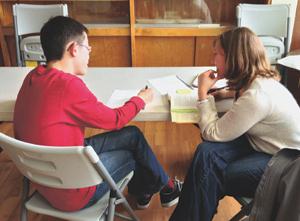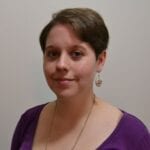High school is a difficult time. It’s often made that much more complicated and confusing because of pressure put on youth to learn according to a curriculum and prepare for careers they may not have decided they want yet.
A new downtown Ottawa learning centre is hoping to change this reality for the city’s teens, giving them more control over their learning experience. The Compass Centre for Self-Directed Learning opened its doors at the Bronson Centre in January, and since then it has become a vibrant space for teens aged 12 to 18. “It’s an alternative to school,” says Compass co-director Abby Karos. “It removes school from the equation altogether, so in terms of issues of control, what’s between the teens and the adults is more of a mentoring relationship.”
Instructors plan and teach classes based on the interests and expertise of both the adults and the teens. Compass teens can learn about topics as diverse as mythology, herbalism, physics and gardening, to name a few. They choose which classes they want to attend, but nobody is forced to adhere to a rigid curriculum. “There’s no bells going off – we’re not compelling them to be in a certain class, but we are reminding them of their commitments,” Karos says.
“One of our core principles is the best preparation for a meaningful and productive future is a meaningful and productive present,” Karos says. “It’s not in this endless preparation for something that’s a far-off goal. It’s to have meaning now.” The centre also makes an effort to involve the teens in their community, taking part in field trips to local galleries and attending political rallies such as the Idle No More protests.
Many of the Compass participants have experienced bullying at their previous schools, and the program endeavours to create a space where they can not only decompress, but also feel safe and secure in being who they are and pursuing their interests. They are also exposed to the daily realities of living in a diverse society – Karos herself is a queer parent and has always been open with the teens about this aspect of her life. “Just by sheer exposure to me they can see that there are people who have same-sex partners,” she says. “It normalizes it.
“The thing about Compass is that teens are really valued for who they are and their individuality, and it’s absolutely not about following the pack… A lot of times the kids who come here might even be the black sheep of their family, not necessarily because they’re queer, but for other reasons,” she says. “They know what it is to not fit in.”


 Why you can trust Xtra
Why you can trust Xtra


